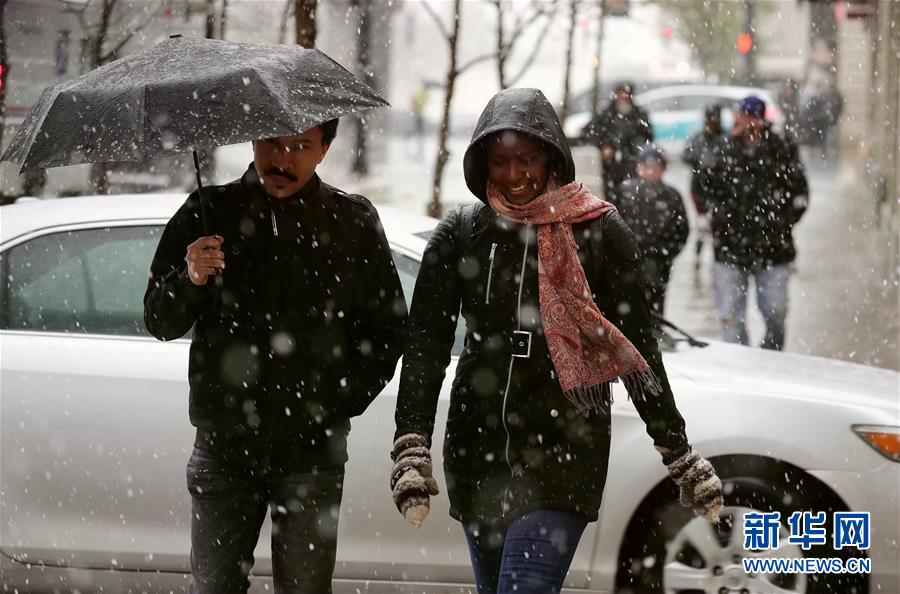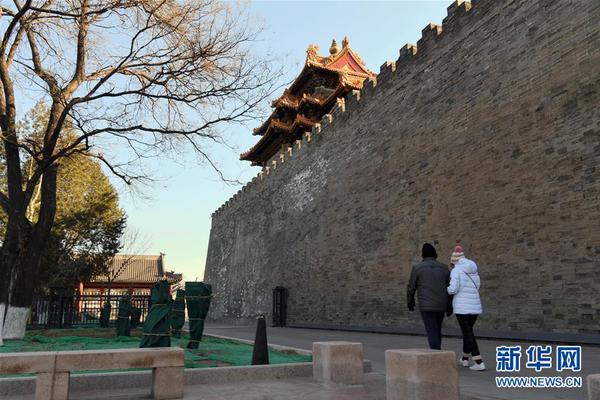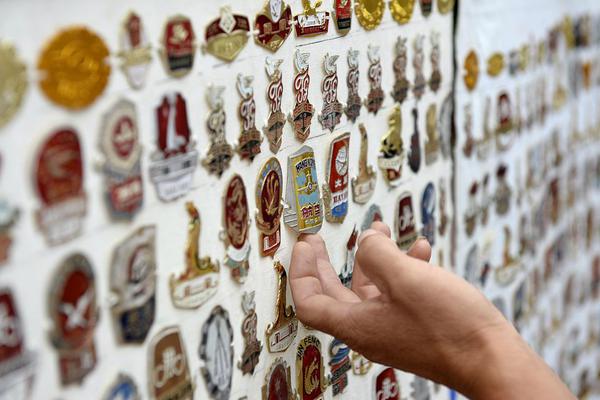The Obsession Archivessubject of technology was largely absent from Monday night's presidential debate, minus some throwaway lines about "the cyber." Given the night's agenda, which focused on "America's Direction," "Achieving Prosperity" and "Securing America," that's a missed opportunity.
SEE ALSO: #TrumpWon trends in the morning after the debate — with plenty of laughterThe future of tech is relevant to every American's life. Jobs will be impacted or wiped out entirely by automation during the next president's term. Our messaging apps are directly related to national security concerns, raising fundamental questions about privacy. And with many Americans struggling to pay for broadband connections at home, what role, if any, should the government play in providing infrastructure?
The future of tech is relevant to every American's life.
These concepts aren't exactly soundbyte-ready, but they all relate to the broad topics of "America's Direction," prosperity and security. You could probably make the argument that all of this affects the average American more than an extensive discussion about who did and did not support the war in Iraq -- but why judge?
Below are three tech topics that were largely ignored by presidential candidates Hillary Clinton and Donald Trump, and why they should come up next time around.
Earlier this year, White House economists issued a report stating that it's very likely that people making less than $20 an hour will lose their jobs to robots. It's possible that new jobs will be created by the technology -- someone has to maintain automated kiosks and robotic factory workers, after all -- but it's far from certain that there will be enough human work to go around.
It's very likely that people making less than $20 an hour will lose their jobs to robots
Some higher paid jobs are at risk, too. Self-driving vehicles could replace human truckers within the next 10 years, potentially at the tail end of our next president's second term, should he or she be reelected.
Uber is already testing self-driving cabs in Pittsburgh. A pizza-making robot exists to automate "repetitive" cooking tasks in Silicon Valley. Facebook trumpets customer service bots for services like 1-800-Flowers, no phone call to a human required. And developers are working on artificial intelligence that can take on HR jobs like corporate recruiting.
All of this is happening now. "Jobs," as a topic, dominated Monday's debate, but the discussion was broad and focused largely on the national debt as well as threats from abroad. We get it -- talking about deep learning technology that could enable AI to replace human jobs isn't sexy. That doesn't mean it isn't relevant.
 Original image has been replaced. Credit: Mashable
Original image has been replaced. Credit: Mashable "Well, the first thing you do is don't let the jobs leave. The companies are leaving," Trump said. "And what you do is you say, fine, you want to go to Mexico or some other country, good luck."
Newly relevant is the question of jobs that disappear because of technology, not globalization. And that never came up.
Should we prioritize privacy or security? Clinton is infamous now for using a private email server while she was secretary of state, so we might guess at where she stands, but this is a question that pertains to any citizen who communicates with a smartphone.
Edward Snowden's leaks about the National Security Agency opened our eyes to how data is surveilled by the government. But the discussion neither begins nor ends there, as we saw when Apple battled the Federal Bureau of Investigation over iPhone encryption following a mass shooting in San Bernardino, California.
Do we want a leader that supports an individual's right to digital privacy, or do we want a leader who prioritizes security at the expense of it? The "Securing America" portion of Monday's debate rightfully included discussions about hacking threats from abroad, but it lacked perspective on the cyber security issues most likely to impact everyday Americans: whether or not they can trust that their online communications won't be intercepted by third parties, including law enforcement.
This Tweet is currently unavailable. It might be loading or has been removed.
Google launched a new messaging app last week that doesn't encrypt messages between users by default, meaning they're not private and they can be viewed by the tech giant or turned over to law enforcement.
Maybe that's fine. It's certainly a reasonable stance for anyone to believe that police should be able to view a suspect's messages. But it is not the de facto rule. Companies like Facebook and Apple do lock law enforcement out of their products in the name of security. Is this not worth discussing?
The overwhelming majority of U.S. citizens are online. But Pew research from 2015 shows that many are connected via smartphone rather than home broadband services.
Many of those people say that they're at a "major disadvantage" for a few reasons. Forty-three percent say lacking broadband makes it harder to find out about job opportunities, while 40 percent say it makes it difficult to access government services.
There's more, as Pew outlines here:

If candidates are concerned about Americans being able to find jobs and make money, they need to consider the digital divide. As the Obama administration states on its website, there's a correlation between high-speed internet connections, income and education. "[Americans without high-speed internet are] falling behind – from the educations they’re pursuing to the businesses they’re running," the post reads.
The internet came up Monday night, but not really in the context you'd expect.
"We came in with the internet, we came up with the internet, and I think Secretary Clinton and myself would agree very much, when you look at what ISIS is doing with the internet, they're beating us at our own game," Trump said.
"I think we need to do much more with our tech companies to prevent ISIS and their operatives from being able to use the internet to radicalize, even direct people in our country and Europe and elsewhere," Clinton responded.
Most internet services in America are provided by tech corporations. Some cities have pushed forward with municipal, public broadband -- like Chattanooga, Tennessee, which has reportedly seen unemployment move from 7.8 percent to 4.1 percent in the past three years. Should the government do more to support high-speed internet infrastructure?
It's a question that could directly impact Americans' prosperity. But, like many others, it's certainly not one that came up on Monday.
Topics Apple Artificial Intelligence Cybersecurity
 How to survive Valentine's Day when you're heartbroken
How to survive Valentine's Day when you're heartbroken
 Wearing a coronavirus face mask outside isn't about you
Wearing a coronavirus face mask outside isn't about you
 Microsoft threatens to cut
Microsoft threatens to cut
 Microsoft threatens to cut
Microsoft threatens to cut
 How I met my partner on X/Twitter
How I met my partner on X/Twitter
 Uber Eats to remove 'ghost kitchens' by the thousands from the app
Uber Eats to remove 'ghost kitchens' by the thousands from the app
 Sexting and nudes are on the rise during quarantine
Sexting and nudes are on the rise during quarantine
 Politician has BBC Dad moment in live TV interview and it's truly a sign of the times
Politician has BBC Dad moment in live TV interview and it's truly a sign of the times
 Best laptop deal: Get the 14
Best laptop deal: Get the 14
 Open captions set the standard through the history of cinematic accessibility
Open captions set the standard through the history of cinematic accessibility
 Dog and cat Google searches surge to new high during COVID
Dog and cat Google searches surge to new high during COVID
 Melania Trump's odd mask PSA contradicts her husband's actions
Melania Trump's odd mask PSA contradicts her husband's actions
 Open letter seeks pause on AI experiments: What it says, who signed it
Open letter seeks pause on AI experiments: What it says, who signed it
 Will Oracle take over TikTok? Trump says he'll make a decision in 30 days
Will Oracle take over TikTok? Trump says he'll make a decision in 30 days
 Apple might soon fix the most annoying thing about AirPods Pro
Apple might soon fix the most annoying thing about AirPods Pro
 Ina Garten's giant cocktail became a meme when we needed it most
Ina Garten's giant cocktail became a meme when we needed it most
 This story about buried cans of beans is a breakup saga for the ages
This story about buried cans of beans is a breakup saga for the ages
 CES 2025: Everything to expect
CES 2025: Everything to expect
 Wisconsin school bans Dolly Parton and Miley Cyrus duet 'Rainbowland'
Wisconsin school bans Dolly Parton and Miley Cyrus duet 'Rainbowland'
A closer look at 'Star Wars: Battlefront II's single and multiplayer modes'Star Wars: Battlefront II' reveals what happened after Endor this NovemberHere's why you shouldn't rush out and update your Google Pixel or NexusFeud: Catherine Zeta'Egg Sheeran' will be the perfect addition to your Easter basketsLOL Melissa McCarthy just destroyed Sean Spicer again on 'SNL'Starbucks could be jumping onto the unicorn train with a new drinkBill Nye and Tyler, The Creator just dropped the hottest theme song ever'Feud' producer talks Joan Crawford's realIt sure looks like the Galaxy S8's battery won't explode even if you stab it with a knifeIt sure looks like the Galaxy S8's battery won't explode even if you stab it with a knifeThe first 'Star Wars: The Last Jedi' poster will take your breath awayDirector F. Gary Gray explains why 'The Fate of the Furious' had to go to New YorkPolitician wears baseball cap to inspect a train toilet, instantly becomes memeHow an 'Uber for pregnant women' is saving lives in TanzaniaStar Wars fans shock and delight Mark Hamill with wedding proposalThis Starbucks barista will draw an awesome caricature of you on your cupCandy Crush and Moschino have joined unlikely forces to create some interesting fashionFacebook cracks down on bogus 'likes' and zombie accounts in battle against fake newsIf you give up your seat on a Delta flight you could get almost $10,000 China Literature to acquire Tencent Animation and Comics for $84 million · TechNode Best headphones deal: save $50 on the new Beats Solo 4 wireless headphones How to block websites on iPhone Alibaba's Freshippo suspends new membership subscriptions · TechNode Alibaba appoints six young leaders to oversee key operations at Taobao and Tmall · TechNode Chinese robot startup AGIBOT completes $85 million financing round: report · TechNode China's BYD, Chery, SAIC planning EV production in Mexico: report · TechNode Huawei releases smart driving app HIMA · TechNode Huawei to establish its first overseas factory in France · TechNode Best Apple iPad Air deal: Save $150 at Amazon The iPhone is your karaoke mic in tvOS 26's Apple Music Sing Douyin releases first fine Car tech firm iMotion shares slump 13% in Hong Kong debut · TechNode LEGO's new model set replicates the International Space Station Chinese battery maker Gotion sets targets to boost overseas shipments in 2027 · TechNode WeChat to charge security deposits on short drama Why today's biblical locust swarms can't be stopped Shanghai raises free license plate threshold for new energy vehicles · TechNode How to stream on Twitch #Blockout2024: Why people are blocking celebrities on social media
1.548s , 10162.671875 kb
Copyright © 2025 Powered by 【Obsession Archives】,Miracle Information Network